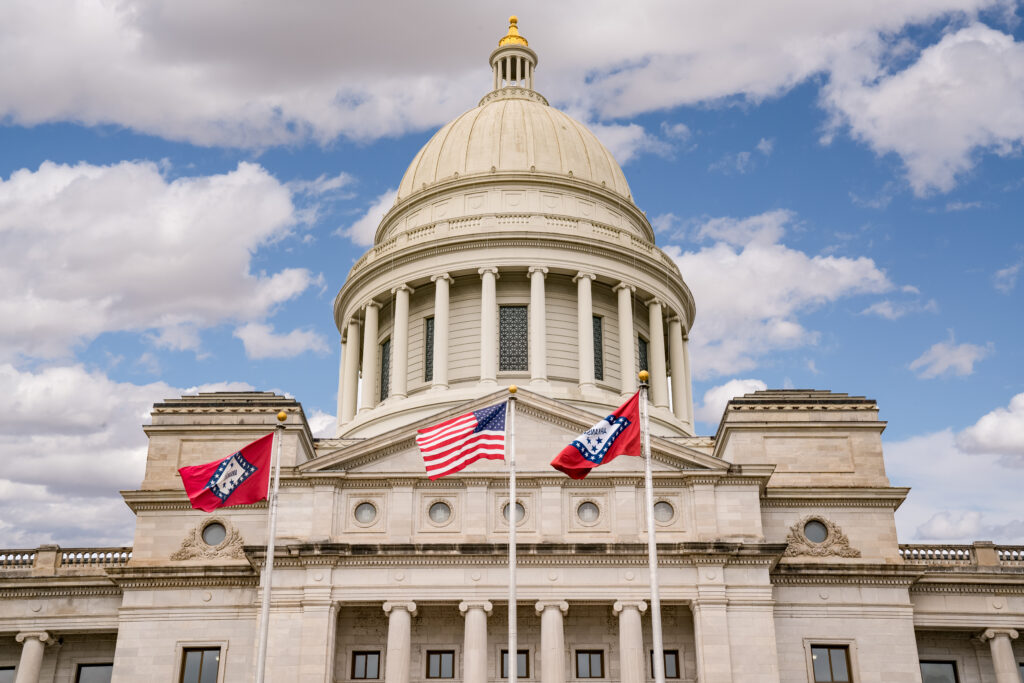Voting Rights Groups Seek to Stop Arkansas Laws Targeting Ballot Initiatives

Pro-voting groups in Arkansas are asking a federal court to block a wave of state laws that they say restrict direct democracy by making it nearly impossible for voters to put issues on the ballot.
In a motion filed Thursday, Protect AR Rights and For AR Kids asked a judge to immediately stop the state from enforcing six laws they say are unconstitutional.
“These new laws — both individually and collectively — unconstitutionally infringe upon Intervenor-Plaintiffs’ First and Fourteenth Amendment rights,” the groups wrote in their complaint.
The challenged laws, passed by the GOP-controlled Arkansas legislature and signed into law by Gov. Sarah Huckabee Sanders (R), include:
- The Reading-Level Rule: Requiring ballot language to meet an eighth-grade reading level, as measured by a machine. The complaint notes that the state only applies this to citizen initiatives — not to measures lawmakers refer to the ballot.
- Canvassing Restrictions: Requiring petition gatherers to check ID, read ballot titles out loud and warn signers that petition fraud is a crime. Each violation carries criminal penalties.
- Pre-Collection Disclosure: Requiring campaigns to submit the full names and addresses of paid canvassers before collecting a single signature — information that is then made public.
- The Fifty-County Rule: Requiring signature collection from 50 out of 75 counties, instead of 15 as previously, making the process vastly more expensive and logistically harder.
Newly being challenged is Act 273, which allows the Arkansas Secretary of State to throw out all signatures gathered by a canvasser based on vague or subjective violations — like failing to “verify” someone’s ID or not witnessing them read a ballot title aloud.
“These laws serve no practical purpose and are expressly designed to make the process of collecting signatures more burdensome,” the complaint states.
In recent years, voters have brought about progressive change in a deeply conservative state using ballot initiatives, including raising the state’s minimum wage and legalizing medical cannabis. Even as the legislature subsequently hampered implementation.
The groups are asking for a preliminary injunction, which would block the laws while litigation continues. A court hearing is expected soon.
If the motion is denied, the groups say it may be impossible to qualify any initiative for the 2026 ballot.
The Elias Law Group (ELG) represents the plaintiffs in the case. ELG Firm Chair Marc Elias is the founder of Democracy Docket.